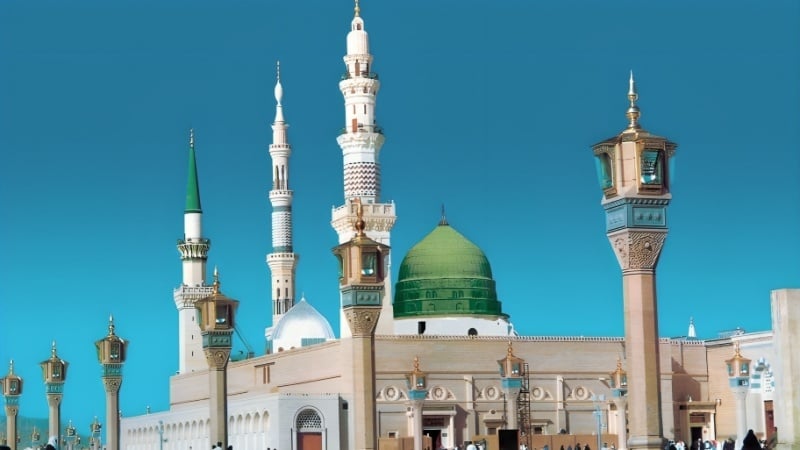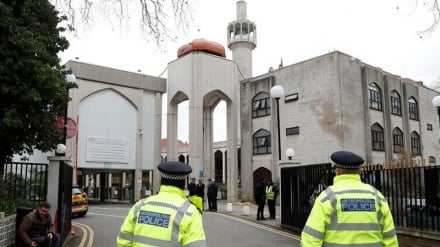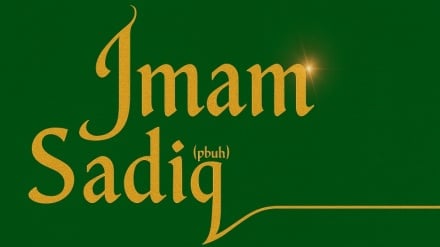What global philosophers and thinkers say about the ethics of the Prophet of Islam
-

The dome of the Prophet Muhammad\'s (PBUH) shrine in Medina, Saudi Arabia
Pars Today – The Prophet of Islam is regarded as one of the greatest figures in human history and the Seal of the Prophets, who began his universal mission with the goal of guiding humanity toward monotheism and justice.
The life of the Prophet is full of moral, human, and spiritual teachings that have left a profound and lasting impact on the history of Islam and humanity. Even Western and non-Muslim orientalists have praised his character. Numerous writings and books by Western and non-Muslim scholars have reflected on the personality of the Prophet of Islam, and this Pars Today report provides an overview of their perspectives.
Michael H. Hart
“The 100: A Ranking of the Most Influential Persons in History” is a book by American author Michael Hart, published in 1978. In this book, the person ranked first as the most influential figure in history is the Prophet of Islam.
Hart explains his choice of the Prophet Muhammad (PBUH) as the most influential person in human history: he was the only man in history to achieve extraordinary success in both spiritual and worldly spheres. Muhammad (PBUH) founded and spread one of the largest religions in history and became an influential political leader. Even today, thirteen centuries after his passing, his influence remains powerful and widespread, making him the most impactful figure in human history.
William Montgomery Watt
William Montgomery Watt (1909–2006), a professor of Arabic and Islamic studies at the University of Edinburgh, Scotland, and one of the most prominent non-Muslim scholars in the West, authored two biographies of the Prophet Muhammad (PBUH): Muhammad at Mecca and Muhammad at Medina, the latter published in 1953.
In Muhammad at Mecca, he wrote:
"This man’s readiness to endure persecution and torture for his beliefs, combined with the noble moral character of those who believed in him, followed him, and accepted him as their leader, alongside the grandeur and achievements of Muhammad, is a sign of the justice and deep-rooted honesty inherent in his character."
Barthelemy Saint-Hilaire
The German orientalist Barthelemy Saint-Hilaire (1793–1884), in his book The Orientals and Their Beliefs, wrote:
"Muhammad called everyone to the one God and, in this mission, even treated his enemies with compassion and kindness. Two of the most valuable human qualities—justice and mercy—were evident in his character."
Édouard Montet
The French philosopher and orientalist Édouard Montet (1817–1894), in his book Les Arabes (The Arabs), wrote:
"Muhammad was renowned for his pure intentions, gentleness, fairness in judgment, clarity in expressing his thoughts, and bringing them to fruition. In short, he was the purest, most devout, and most compassionate figure of his time, and the strongest in managing affairs, guiding people to a life they had never even imagined, and establishing an advanced and religious state that endures to this day."
Jean-Jacques Rousseau
The Swiss writer, political theorist, and one of the foremost figures of 18th-century Enlightenment philosophy, Jean-Jacques Rousseau, said about the Prophet Muhammad (PBUH):
"Until today, the world has not seen a man capable of guiding minds and hearts from idol worship to the worship of the one God, except Muhammad. Had he not begun his life with honesty and integrity, even those closest to him would not have believed in him—especially after becoming the messenger of God to a people whose minds and hearts were hardened; yet the God who chose him to deliver His message had prepared him from childhood."
Alphonse de Lamartine
The French thinker Alphonse de Lamartine (1790–1869) said that the greatest event in his life was thoroughly studying the life of the Prophet of Islam and realizing its grandeur and timelessness. He noted:
"Famous men have built armies, enacted laws, and founded empires; but this man, Muhammad (PBUH), commanded no army, made no laws, administered no empires, and ruled no people. Yet he guided millions of people, who at that time comprised a third of the world, and not only that—he also abolished false beliefs and superstitions."
Bernard Shaw
The English writer Bernard Shaw (1856–1950) said:
"I have read the life of the Messenger of Islam again and again, and in it I have seen nothing but perfection in creation. How I wished that this religion were the path for all humanity."
Rama Krishna
The Hindu spiritual leader Rama Krishna (1886) wrote in his book Muhammad the Prophet:
"It is not possible to fully know the character of Muhammad from all aspects, but what I can offer is a brief glimpse into his life through a series of beautiful images. He is Muhammad the Prophet, Muhammad the warrior, Muhammad the merchant, Muhammad the statesman, Muhammad the orator, Muhammad the reformer, Muhammad the guardian of orphans, Muhammad the protector of slaves, Muhammad the liberator of maidservants, and Muhammad the just. All these remarkable roles made him a hero."
Leo Tolstoy
The famous Russian writer Leo Tolstoy (1828–1910) said:
"The pride of Muhammad lies in the fact that he freed a humble people from the chains of pre-Islamic customs and traditions and opened the path of growth and progress before them. Muhammad’s Sharia, due to its harmony with reason and wisdom, will govern the world."
William Muir
William Muir (1819–1905), in his book The Life of Mahomet, wrote:
"Muhammad, the Prophet of the Muslims, was called ‘Al-Amin’ (the Trustworthy) from childhood due to his noble morals and virtuous behavior. Beyond this, his character is such that no describer can fully capture his exalted qualities, and due to their own ignorance and limited knowledge, people can never truly understand him. However, anyone who studies and reflects on the magnificent course of his life—which placed him at the forefront of prophets and thinkers of the world—can gain some insight into the scope of his character."
Bertrand Russell
Bertrand Russell, one of Britain’s greatest philosophers and Nobel Peace Prize laureate in 1950, said:
"I have read about Islam and the Prophet of Islam and realized that it is a religion meant to become the religion of the world and humanity. The teachings that Muhammad brought are still being studied and examined, and we continue to recognize their highest merits."
Edward Brown
The French scholar Edward Brown (1862–1926), in his book The History of Civilizations in the World, wrote:
"Muhammad ibn Abdullah brought a new religion to the Arabs and all people, calling them to worship the one God. In his preaching, Sharia was inseparable from belief and faith. He possessed a binding divine authority that governed not only religious matters but worldly affairs as well. Thus, he made zakat obligatory for Muslims and prescribed jihad against the polytheists. He established a social system that went beyond the tribal structure of pre-Islamic Arabs, thereby creating a cohesive religious unity for the Arabian Peninsula, something previously unknown."
Gustave Le Bon
The French orientalist Gustave Le Bon (1821–1921) said:
"If the worth of men is measured by the greatness of their deeds, Muhammad was one of the greatest individuals known to history. Some Western scholars have observed justice and fairness in regard to Muhammad (PBUH), although religious bias has blinded the insight of many historians who have come to be known thanks to him."


